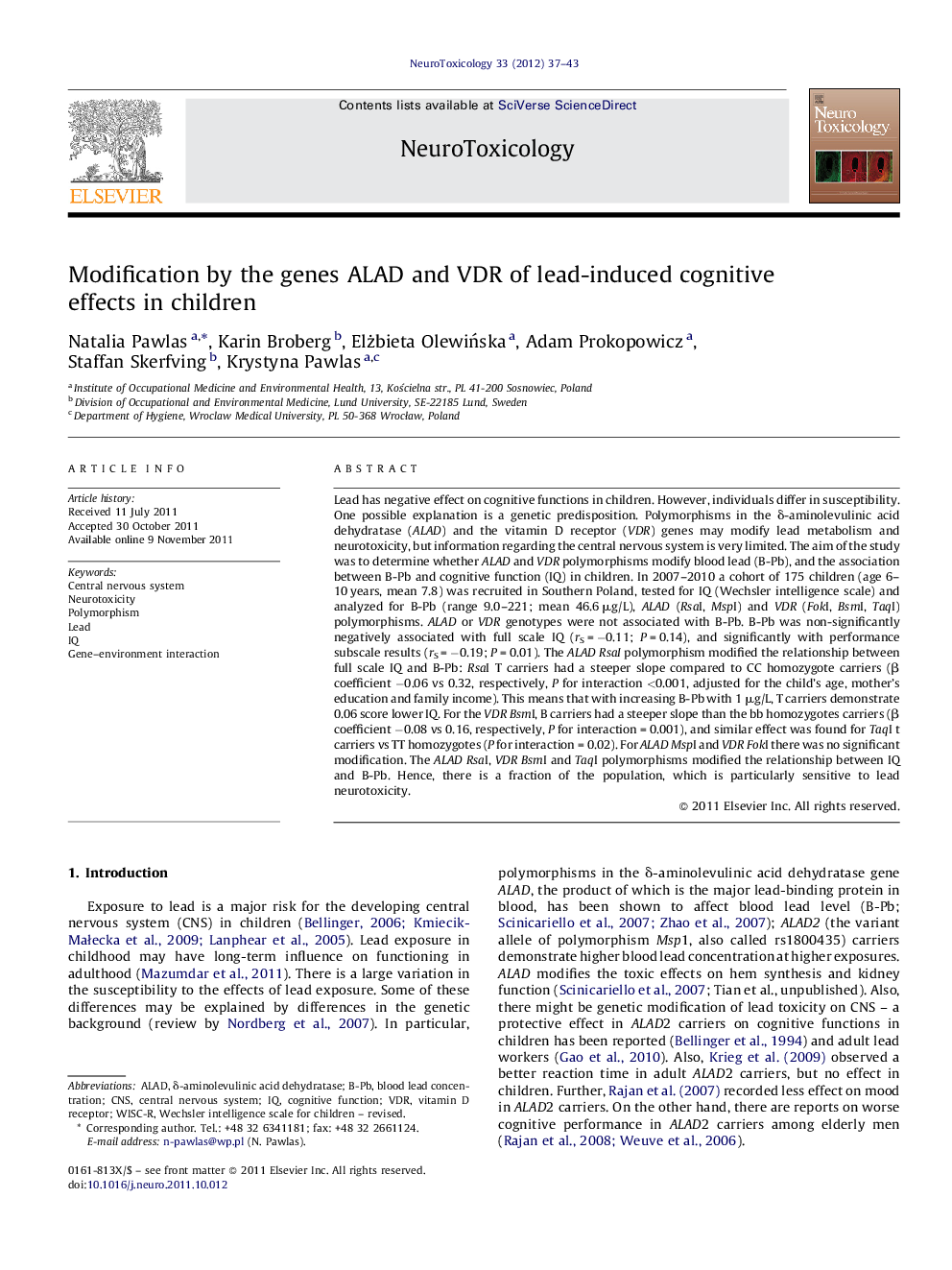| Article ID | Journal | Published Year | Pages | File Type |
|---|---|---|---|---|
| 2589781 | NeuroToxicology | 2012 | 7 Pages |
Lead has negative effect on cognitive functions in children. However, individuals differ in susceptibility. One possible explanation is a genetic predisposition. Polymorphisms in the δ-aminolevulinic acid dehydratase (ALAD) and the vitamin D receptor (VDR) genes may modify lead metabolism and neurotoxicity, but information regarding the central nervous system is very limited. The aim of the study was to determine whether ALAD and VDR polymorphisms modify blood lead (B-Pb), and the association between B-Pb and cognitive function (IQ) in children. In 2007–2010 a cohort of 175 children (age 6–10 years, mean 7.8) was recruited in Southern Poland, tested for IQ (Wechsler intelligence scale) and analyzed for B-Pb (range 9.0–221; mean 46.6 μg/L), ALAD (RsaI, MspI) and VDR (FokI, BsmI, TaqI) polymorphisms. ALAD or VDR genotypes were not associated with B-Pb. B-Pb was non-significantly negatively associated with full scale IQ (rS = −0.11; P = 0.14), and significantly with performance subscale results (rS = −0.19; P = 0.01). The ALAD RsaI polymorphism modified the relationship between full scale IQ and B-Pb: RsaI T carriers had a steeper slope compared to CC homozygote carriers (β coefficient −0.06 vs 0.32, respectively, P for interaction <0.001, adjusted for the child's age, mother's education and family income). This means that with increasing B-Pb with 1 μg/L, T carriers demonstrate 0.06 score lower IQ. For the VDR BsmI, B carriers had a steeper slope than the bb homozygotes carriers (β coefficient −0.08 vs 0.16, respectively, P for interaction = 0.001), and similar effect was found for TaqI t carriers vs TT homozygotes (P for interaction = 0.02). For ALAD MspI and VDR FokI there was no significant modification. The ALAD RsaI, VDR BsmI and TaqI polymorphisms modified the relationship between IQ and B-Pb. Hence, there is a fraction of the population, which is particularly sensitive to lead neurotoxicity.
► There exists a genetic influence on lead toxicokinetics and toxicodynamics. ► We report findings of genetic modification by ALAD and VDR polymorphisms on lead-related cognitive dysfunction in children. ► ALAD RsaI T, VDR BsmI B and VDR TaqI t variants were associated with more lead damage on the cognitive function. ► It may have implications for risk assessment for lead.
